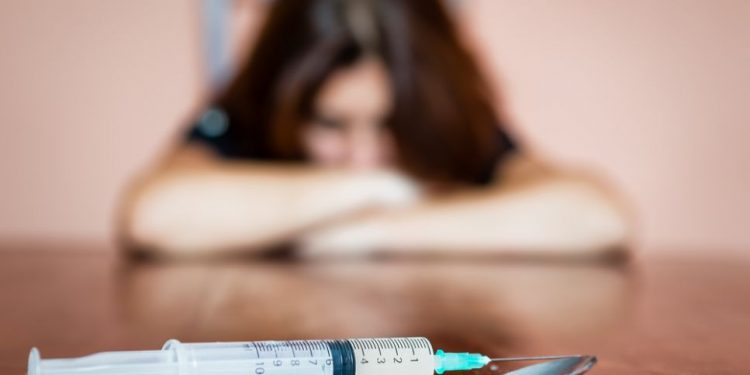Heroin addiction symptoms may include cravings, anxiety, and physical and psychological dependence. If you or a loved one has heroin addiction, it is important to seek treatment right away. The sooner you get help, the faster your recovery will be.
Heroin is a powerful central nervous system depressant, meaning it slows down breathing, heart rate and brain activity, causing an individual to become sleepy, drowsy or lose consciousness. It can also cause serious health issues, including collapsed veins, infection of the heart and lungs, and fatal overdose.
Regular use of heroin can lead to tolerance, which means the body needs to take more and more of the drug to achieve the same effects. Once a person’s body is dependent on heroin, they will experience withdrawal symptoms when they stop taking it.
These symptoms typically occur between six and 12 hours after the last dose of heroin. They can be intense, causing severe pain and discomfort in the legs, arms, stomach, chest and head.
The symptoms of withdrawal can last up to a week. During this time, you will need to take medications to manage your symptoms. These medications can include buprenorphine, methadone and naltrexone.
Medication-assisted treatment (MAT) is a proven approach to heroin recovery. These medications, in combination with counseling and behavioral therapies, can effectively help you break the cycle of heroin use.

MAT medications such as buprenorphine, methadone, and naltrexone can reduce cravings and make the detox process easier to complete. This is because these drugs can bind to the opioid receptors in your brain that are linked to feelings of euphoria.
Psychotherapy, which is often part of MAT, can also help you learn healthier coping skills, improve communication and understand the root of your substance use disorder. It is important to find a therapy program that is tailored to your needs and goals.
Your treatment provider can talk to you about how to access MAT programs near you, or you can ask for referrals from family and friends. You can also contact the National Council on Alcohol and Drug Dependence or the Substance Abuse and Mental Health Services Administration hotline to find programs in your area.
Addiction is a complex and chronic condition that can affect individuals in all walks of life. The disease can progress from mild to severe, and it is essential that you have the support of a professional to treat your addiction effectively.
The best treatment for heroin addiction is customized to fit your specific needs and goals. Some programs focus on a medically-supervised detox, while others provide medication for cravings and other symptoms.
It is important to seek professional treatment from a qualified team of professionals who can assess your situation and recommend the most effective treatment. Your doctor or therapist can discuss options for a heroin recovery program that will meet your needs and goals.
Your treatment team will be able to help you with medications, behavioral therapy and support groups. These programs can help you break the cycle of drug use and stay sober for good. You can also work with a counselor to address any mental health or family issues that have contributed to your heroin use.









